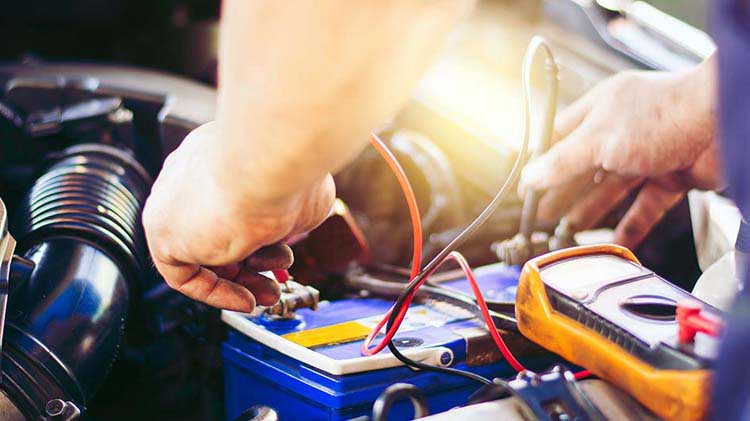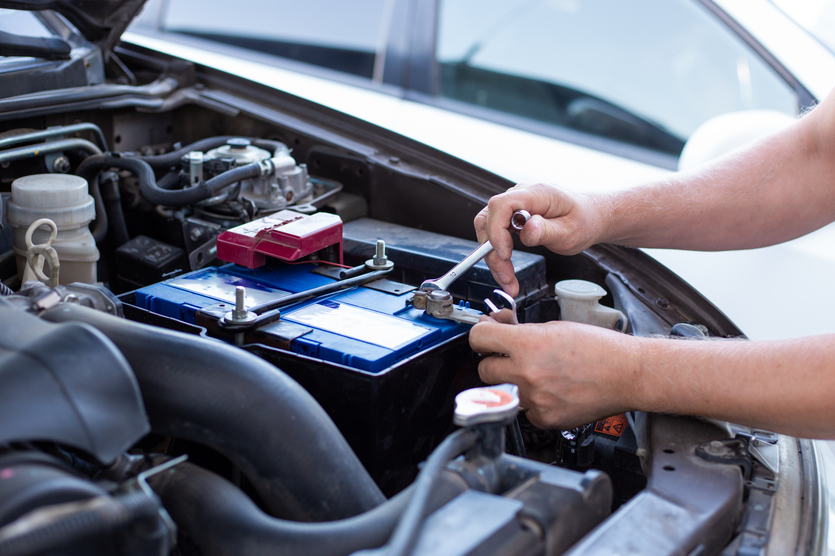put water in car battery
As a car owner, you may have heard of the suggestion to put water in your car battery. While it might seem like a quick fix for a low battery, adding water is not always the best solution and can actually do more harm than good.
Firstly, it’s important to understand the makeup of a car battery. A typical lead-acid car battery consists of six cells, each filled with a solution of water and sulfuric acid. When the battery is in use, the sulfuric acid breaks down the lead plates in the cells, releasing electrons and generating electricity. Over time, the water in the solution evaporates, leaving behind a higher concentration of acid. This causes the lead plates to corrode and reduces the battery’s capacity to hold a charge.
Adding water to the battery can help to dilute the acid and restore the battery’s ability to hold a charge. However, it’s crucial to add the right amount of water and to use distilled water only. Tap water contains minerals and impurities that can react with the sulfuric acid and further damage the battery.
To add water to the battery, first, remove the caps on the top of the battery. There should be six caps, one for each cell. Using a funnel, slowly pour distilled water into each cell until the water level reaches the bottom of the fill hole. It’s essential not to overfill the cells as this can cause the water to spill out and damage the battery.
After adding water, it’s vital to check the battery’s voltage to ensure it’s still within the acceptable range. A fully charged battery should have a voltage of around 12.6 volts. If the voltage is lower, it may be an indication of a deeper problem, and adding water alone is unlikely to fix it.

It’s also worth noting that adding water to a battery won’t fix the underlying issue of why the battery was low in the first place. If the battery is consistently low, it may be a sign that the alternator or charging system is not functioning correctly. In this case, it’s best to have the car inspected by a professional mechanic.
In conclusion, adding water to your car battery can be a temporary solution to a low battery, but it’s not always the best option. It’s crucial to use distilled water and add the correct amount to avoid further damage to the battery. If the battery is consistently low, it’s best to have the car inspected by a professional mechanic to diagnose and fix any underlying issues.
-
 The demand for renewable energy sources has increased significantly in recent years, and it has led to an increase in the production of lithium-ion batteries. Among these batteries, the LiFePO4 battery is gaining popularity due to its long cycle life, high safety, and environmental friendliness. In this article, we will discuss the price of a 100Ah LiFePO4 battery. The...Read more
The demand for renewable energy sources has increased significantly in recent years, and it has led to an increase in the production of lithium-ion batteries. Among these batteries, the LiFePO4 battery is gaining popularity due to its long cycle life, high safety, and environmental friendliness. In this article, we will discuss the price of a 100Ah LiFePO4 battery. The...Read more -
 Introduction: Reliable power sources are crucial for various applications. Whether you are exploring the great outdoors, powering up your vehicle, or looking for a backup power solution, the High Capacity 100ah 12V LiFePO4 Battery is here to provide you with a reliable and efficient power solution. This article will delve into the features, benefits, and applications of this battery, highlighting...Read more
Introduction: Reliable power sources are crucial for various applications. Whether you are exploring the great outdoors, powering up your vehicle, or looking for a backup power solution, the High Capacity 100ah 12V LiFePO4 Battery is here to provide you with a reliable and efficient power solution. This article will delve into the features, benefits, and applications of this battery, highlighting...Read more -
 As technology continues to advance at an unprecedented pace, innovations in the automotive industry have also surged forward. One such innovation is the 12V lithium starter battery, which is quickly gaining popularity among car enthusiasts and professionals alike. This lightweight, high-performance battery boasts numerous advantages over traditional lead-acid batteries, making it an attractive option for those looking to upgrade their...Read more
As technology continues to advance at an unprecedented pace, innovations in the automotive industry have also surged forward. One such innovation is the 12V lithium starter battery, which is quickly gaining popularity among car enthusiasts and professionals alike. This lightweight, high-performance battery boasts numerous advantages over traditional lead-acid batteries, making it an attractive option for those looking to upgrade their...Read more -
 The demand for reliable and efficient battery chargers has increased significantly in recent years. With the rise of electric vehicles, renewable energy systems, and other battery-powered applications, it has become crucial to have a high-quality charger that can provide the necessary power while also being energy-efficient and cost-effective. One such solution that has gained popularity among users is the 24V...Read more
The demand for reliable and efficient battery chargers has increased significantly in recent years. With the rise of electric vehicles, renewable energy systems, and other battery-powered applications, it has become crucial to have a high-quality charger that can provide the necessary power while also being energy-efficient and cost-effective. One such solution that has gained popularity among users is the 24V...Read more -
 Military technology continues to advance at an astonishing rate. One crucial aspect of military equipment that has seen significant improvements is battery technology. Lithium batteries, in particular, have revolutionized the performance of military equipment, providing longer-lasting power, increased energy density, and enhanced efficiency. Lithium batteries have become the preferred choice for military applications due to their numerous advantages over...Read more
Military technology continues to advance at an astonishing rate. One crucial aspect of military equipment that has seen significant improvements is battery technology. Lithium batteries, in particular, have revolutionized the performance of military equipment, providing longer-lasting power, increased energy density, and enhanced efficiency. Lithium batteries have become the preferred choice for military applications due to their numerous advantages over...Read more -
 Introduction Lithium iron phosphate (LiFePO4) batteries are a type of rechargeable battery that have been gaining popularity in recent years due to their superior performance compared to other types of rechargeable batteries. LiFePO4 batteries have a number of advantages over traditional lead-acid batteries, including longer cycle life, higher energy density, and faster charging times. In this article, we will...Read more
Introduction Lithium iron phosphate (LiFePO4) batteries are a type of rechargeable battery that have been gaining popularity in recent years due to their superior performance compared to other types of rechargeable batteries. LiFePO4 batteries have a number of advantages over traditional lead-acid batteries, including longer cycle life, higher energy density, and faster charging times. In this article, we will...Read more -
 In today's rapidly advancing technological world, energy storage is becoming increasingly important. High performance applications require power sources that are not only reliable and efficient, but also long-lasting. One such power source is the 48V LiFePO4 battery. LiFePO4 batteries, also known as Lithium Iron Phosphate batteries, are a type of rechargeable battery that provide a number of advantages over...Read more
In today's rapidly advancing technological world, energy storage is becoming increasingly important. High performance applications require power sources that are not only reliable and efficient, but also long-lasting. One such power source is the 48V LiFePO4 battery. LiFePO4 batteries, also known as Lithium Iron Phosphate batteries, are a type of rechargeable battery that provide a number of advantages over...Read more

